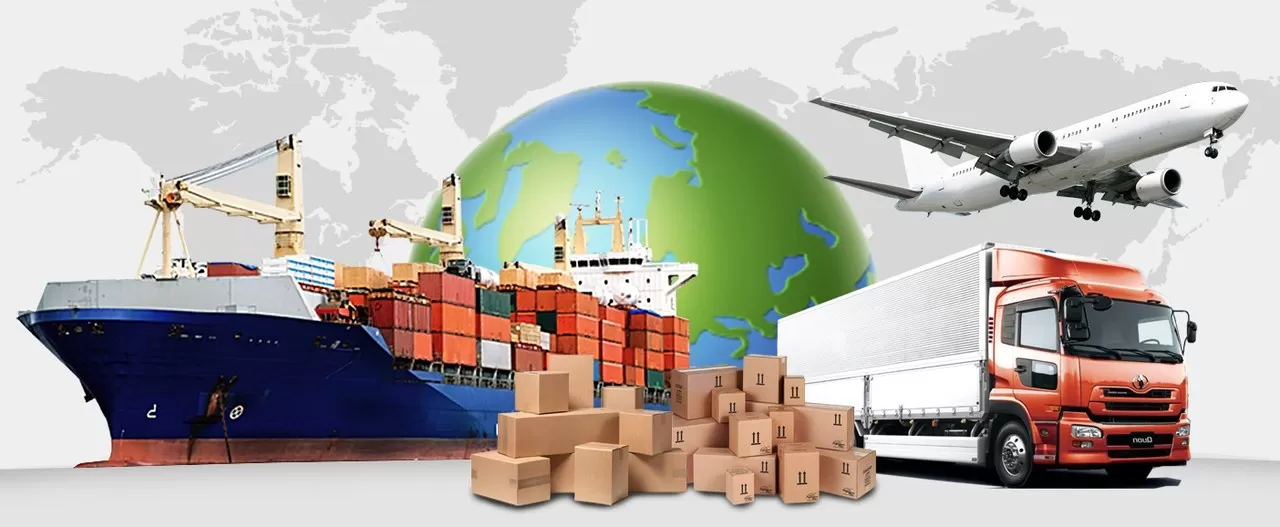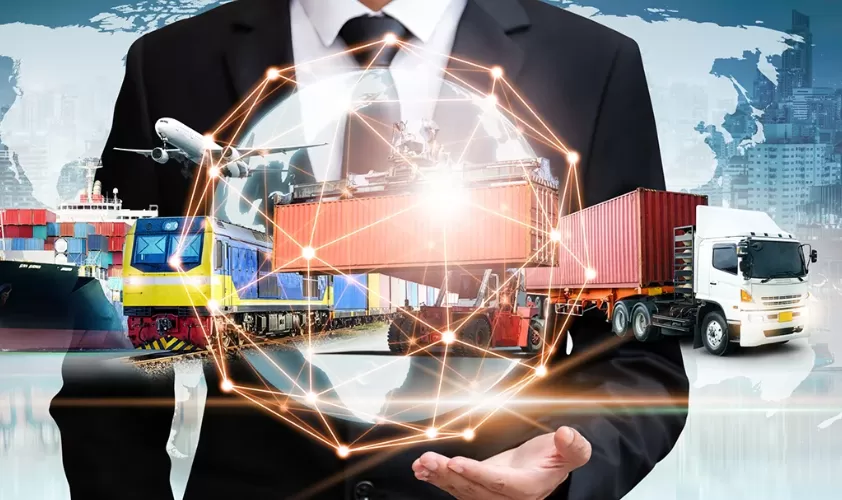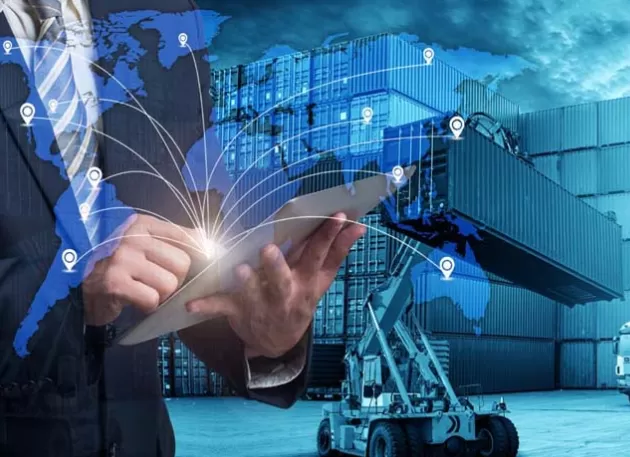Imagine reclaiming all the hours you currently spend chasing quotes,filling out customs forms,and anxiously tracking vessels.A freight forwarder gives you that time back,freeing you to focus on product development and sales . International shipping is a labyrinth of paperwork,volatile costs,and unpredictable delays.One misstep can cost you thousands.
This is wherefreight forwardingtransforms from a logistical function into your most critical strategic partnership.A freight forwarder isn't just a vendor;they are your navigator,your negotiator,and your risk manager,all rolled into one.This guide will demystify exactly what they do,why you need one,and how to leverage their expertise to build a resilient,scalable,and profitable global supply chain.
1. More Than a Middleman: The True Definition of a Freight Forwarder
Calling a freight forwarder a"middleman"is like calling a symphony conductor a"person who waves a stick."It misses the entire point.
Afreight forwarder is a logistics architect.They are experts who design,coordinate,and execute the movement of goods from the point of origin to the final destination on behalf of individuals or companies.Crucially,they typically do not own the transportation assets(ships,planes,trucks)themselves.Instead,they act as an agent,leveraging their vast network and volume to secure capacity and favorable rates from carriers.
Think of it this way: You wouldn't personally book a flight, a hotel, a rental car,and museum tickets for a vacation across three countries.You'd use a travel agent who packages it all seamlessly.A freight forwarder is the travel agent for your cargo, handling the intricate journey so you can focus on your business.
2. Beyond Cost Savings: The Strategic Value of a Forwarding Partner
The value of a forwarder extends far beyond just getting a cheap rate.Their expertise translates into tangible business advantages.
Expertise You Can't Replicate In-House:They live and breathe customs regulations,HS codes(a universal classification code for traded products),and import/export compliance.A single paperwork error can lead to customs holds,devastating demurrage and detention fees,or even having your goods destroyed.Their knowledge is your insurance policy against these costly mistakes.
Real Cost Efficiency(Not Just Cheap Rates):Yes,their negotiated carrier rates are lower.But the real savings come fromoptimization.They know when to use air freight vs.sea freight,how to consolidate LCL(Less than Container Load)shipments effectively(often saving 30%+vs.going direct),and can advise on the most cost-effective ports and routes.This includes selecting the right Incoterms to avoid unexpected terminal handling charges or minimizing the risk ofdemurrage and detention fees(hefty charges for late container pickup/return)—costs that can quickly eclipse your shipping fee.
Time is a Non-Renewable Resource:The hours you would spend chasing quotes,filling out endless forms,and tracking vessels are hours not spent on product development,marketing,and sales.Outsourcing logistics is a high-leverage activity that frees up your most valuable asset:your focus.
Risk Mitigation and Peace of Mind:From arranging cargo insurance to providing real-time tracking and proactively managing delays,a good forwarder shields you from the myriad risks inherent in global trade.They are your problem-solvers when things go wrong.
Unmatched Scalability and Flexibility:Whether you're shipping a single pallet or 100 containers,a forwarder can scale with you.They provide the flexibility to test new markets and routes without the need for massive internal investment.
2.5 Debunking Common Myths About Freight Forwarders
Let's clear up the misconceptions that might be holding you back.
Myth 1:"Freight Forwarders Are Just Expensive Middlemen."
Reality:This is the biggest fallacy.Forwarders are cost-savers.Their volume-based negotiated rates,ability to consolidate shipments(LCL),and expertise in avoiding costly errors and fines(like customs holds)save you far more than their service fee.They are a profit center,not a cost center.
Myth 2:"I Lose All Control of My Shipment."
Reality:The opposite is true.A professional forwarder provides morecontrol and visibility through real-time tracking,proactive updates,and expert guidance.You're not losing control;you're gaining a co-pilot who handles the stressful navigation,letting you focus on steering your business.
Myth 3:"They Only Handle Giant Shipments."
Reality:LCL(Less than Container Load)services are specifically designed for small to medium-sized businesses.It allows you to ship smaller volumes while still accessing competitive ocean freight rates by sharing container space with other shippers.
Myth 4:"My Manufacturer's Forwarder is Good Enough."
Reality:Their loyalty is to the manufacturer,not you.They often lack specific expertise in your destination market's customs and,crucially,Amazon's strict FBA requirements,which can lead to delays,unexpected fees,and receiving delays at the fulfillment center.
3.The Engine Room:A Step-by-Step Breakdown of the Forwarding Process
How does it actually work?Let's step into the engine room.Here’s how we convert your shipping instructions into a smoothly executed operation:
1.Inquiry & Strategic Planning:You provide us withproduct details(dimensions,weight,HS code,value).We analyze thisto provide not just a quote,but astrategy—recommending the optimal mode of transport and route based on your budget and timeline.
2.Export Haulage&Origin Handling:We arrangethe first-mile trucking to pick up your goods from the manufacturer.At our origin warehouse,criticalAmazon prepor general cargo prep occurs:applying FNSKU labels,poly-bagging,cartonization,and palletizing to compliance standards.
3.Customs Clearance(Export)&Documentation:We prepare and submitall export documentation—Commercial Invoice,Packing List,Certificate of Origin,andmanage the process of obtainingthe Bill of Lading(B/L)from the carrier,which acts as the contract of carriage and title to the goods.
4.Main Carriage Booking&Execution:We bookthe cargo space on the chosen vessel,aircraft,or truck.We manage the relationship with the carrier,ensuring your goods are loaded and departed on schedule.
5. Customs Clearance (Import):Before the goods arrive,our brokerage team is pre-clearing them with the destination country's customs.We calculate and adviseon all duties and taxes,preventing surprises and delays at the port.
6.Import Haulage & Final Delivery:Once cleared,we arrangethe final trucking(drayage)from the destination port or airport directly to the Amazon FC or your warehouse's dock door.
7.Proof of Delivery&Communication:You receive confirmation of delivery.Throughout this entire chain,we provide proactive,real-time updates.
This coordinated effort,much like an engine room's operation,is what ensures your cargo moves efficiently behind the scenes.
4.Finding the Right Fit:Types of Freight Forwarding Services
Not all forwarders are created equal.Understanding their specializations is key to finding your perfect match.
By Transport Mode:
Ocean Freight Experts:Masters of FCL(Full Container Load)and LCL,ideal for high-volume,cost-sensitive shipments.
Air Freight Specialists:Focus on speed and reliability for high-value or time-critical goods.
Road&Rail Experts:Essential for continental and cross-border logistics,like shipping within the EU or from the US to Canada/Mexico.
Intermodal Pros:Experts at seamlessly combining different transport modes for complex,multi-leg journeys.
By Service Scope:
International Freight Forwarders:Handle the complex cross-border supply chain.
Domestic Freight Forwarders:Manage logistics within a single country,often acting as a broker for domestic trucking.
Specialized Forwarders(The Niche Experts):
Project Cargo:For oversized,heavy,or complex shipments like machinery or wind turbine blades.
Dangerous Goods(HAZMAT):Certified and trained to handle the strict regulations around hazardous materials.
Cold Chain Logistics:Specialize in temperature-controlled shipping for pharmaceuticals,food,and perishables.
5. Freight Forwarder vs. Carrier: Demystifying Who Does What
This is a fundamental point of confusion. Here’s the clear, simple distinction:
|
Feature
|
Freight Forwarder
|
Carrier
|
|
Role
|
The Coordinator & Architect. Your single point of contact managing the entire journey.
|
The Muscle. Executes one specific leg of the journey (e.g., the ocean transit).
|
|
Asset Ownership
|
Typically does not own ships/planes. Acts as an agent.
|
Owns the transportation assets (vessels, aircraft, trucks).
|
|
Liability
|
Manages the entire chain of liability. Your advocate if something goes wrong with a carrier.
|
Liability is limited to the portion of the journey they control.
|
|
Value Provided
|
Optimization, Expertise, Simplification. A strategic partner.
|
Transportation. A service provider.
|
|
Who Hires Them
|
You (The Shipper).
|
The Freight Forwarder (or a very large shipper).
|
In short: You hire the forwarder. The forwarder hires the carrier.
6.Your Selection Blueprint:How to Choose a Partner&Red Flags to Avoid
Choosing a forwarder is a strategic decision.Use this blueprint.
FBA&E-commerce Expertise:Do they speak Amazon's language?Do they understand FNSKU labels,Amazon's strict packaging requirements,and appointment scheduling?
Network Strength:Do they have a strong presence or partners in both your origin(e.g.,China,Vietnam)and destination countries?
Technology&Transparency:Do they offer a real-time online tracking portal?Is their quoting process detailed and transparent?
Communication:Are they responsive and proactive?Do you have a dedicated account manager?
Credentials:Check for relevant certifications(e.g.,IATA for air freight,FMC for ocean freight,FIATA membership).
Red Flags to Run From:
Vague,All-Inclusive Quotes:If they won't provide a detailed line-item breakdown of costs,hidden fees will follow.
Poor Communication During the Sales Process:This will only get worse after you sign.
No Cargo Insurance Options:This shows a disregard for risk management.
No Knowledge of Your Sales Channel Requirements:If you mention Amazon FBA and they don't immediately bring up topics like Amazon's SPN(Partner Carrier Program),appointment scheduling,or FBA label requirements,it's a major red flag.
Lack of Specific Knowledge:If they can't confidently answer questions about your specific product type or destination country's regulations,they are not the right fit.
Frequently Asked Questions(FAQs)
Q1:If my goods are inspected by customs,what happens and who is responsible for the fees?
A:Customs inspections are a normal part of international trade,though they can cause delays.If your shipment is selected for a physical exam,customs will inspect the contents to verify documentation.The freight forwarder will coordinate the process,but thecustoms examination feeis typically billed directly to you,the importer of record.A good forwarder will manage this smoothly and keep you informed every step of the way.
Q2:Do I own the cargo while it's in transit with a forwarder?
A:Yes,absolutely.The freight forwarder is acting as your agent.Ownership of the goods never transfers to them.Their job is to facilitate the movement of yourcargo on your behalf.Documents like the Bill of Lading serve as proof of that ownership throughout the journey.
Q3:Can a freight forwarder help me ship a personal effects relocation or used household goods?
A:Many forwarders offer specialized services for personal effects and emigrant shipments.This involves different paperwork,like detailed packing lists and customs declarations for used goods,which are treated differently from new commercial products.It's crucial to find a forwarder with specific experience in this niche to avoid complications.
Q4:What's the difference between a freight forwarder using a subcontractor and me hiring that company directly?
A:The forwarder's value is in managing the entire chain.If they subcontract the final trucking leg,they are still your single point of contact and assume full responsibility for that carrier's performance,pricing,and any issues.If you hire the trucking company directly,you now have to manage that relationship and liability yourself,adding complexity.
Q5:How do forwarders handle"off-dock"versus"on-dock"rail moves,and why should I care?
A:This is a technical but crucial detail for inland destinations.An"on-dock"rail move means the container is directly transferred from the ship to a rail car at the port,which is faster and reduces handling.An"off-dock"move requires a truck to first take the container to a separate rail yard.A skilled forwarder will always aim for on-dock moves to minimize transit time and the risk of damage or delays.
Q6:My product doesn't have a clear HS code.What does the forwarder do in this situation?
A:Determining the correct Harmonized System(HS)code is a joint responsibility.You,as the importer,are legally responsible for classifying your product.However,an experienced forwarder will provide invaluable guidance based on their knowledge of the tariff schedule and customs rulings.They may advise you to seek a binding ruling from customs for absolute certainty,which protects you from future classification disputes.
Q7:What exactly is a"customs bond,"and do I need one?
A:A customs bond is essentially an insurance policy guaranteeing the US government that you will pay any duties,taxes,and fees owed.If your total duties and fees paid to Customs exceed$500 in a 12-month period,you are required to have a continuous bond.For smaller importers,a single-transaction bond can be filed for each shipment.Your freight forwarder or customs broker will arrange this for you.
Q8:If a port is congested or there's a strike,how does my forwarder mitigate that risk?
A:Proactive forwarders monitor global logistics news constantly.At the first sign of major disruption at a port,they will explore contingencies:rerouting shipments to alternative ports,advising on temporary storage options,or switching modes(e.g.,from sea to air for critical goods).Their network allows them to pivot much faster than an individual shipper could.
Q9:Beyond basic tracking,what kind of proactive communication should I expect?
A:You should expect more than just a tracking number.A great forwarder provides proactive alerts for key milestones:vessel departure/arrival,customs clearance status,and any unexpected delays.They should also notify you of potential issues beforethey become problems,like a missing document that could hold up clearance.
Q10:How are freight forwarders paid?Is it a flat fee or a commission from carriers?
A:Reputable forwarders are transparent.They typically earn their profit through the margin between the wholesale rate they get from the carrier and the retail rate they charge you.They should provide a detailed breakdown of all charges(freight,fuel,fees).You should always know exactly what you're paying for,with no hidden"commissions."
Conclusion:Your Supply Chain,Optimized
In the beginning,we described international shipping as a daunting maze of complexity,cost traps,and stress.A freight forwarder is your guide through that maze,transforming logistics from a source of anxiety into a reliable,strategic advantage.
They are not an expense;they are an investment in the efficiency,stability,and growth of your business.The right partner doesn't just execute shipments;they provide strategic insights,mitigate risks,and ultimately,become a cornerstone of your success.

 EN
EN
 FR
FR
 ES
ES
 JA
JA
 PT
PT
 RU
RU
 AR
AR







